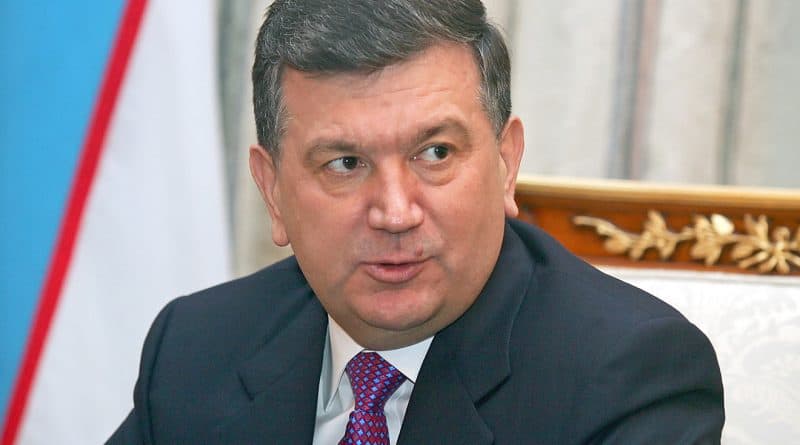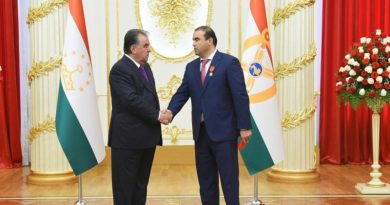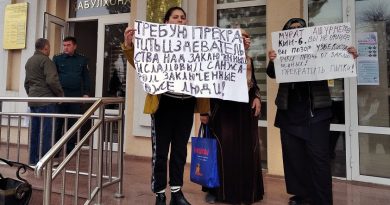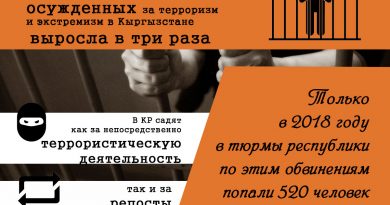Uzbekistan: up to 5 years in prison for insulting the President
The President Mirziyoev signed a decree returning the country to the era of Karimov-style totalitarianism. Criticism of the President and the state fell under the ban. Criminal responsibility for public calls for mass riots was enshrined. Even the media and blogosphere, which have restrictions on freedom of speech, are in an extremely vulnerable position.
Earlier, ACCA published the material on the legislative initiative of the Uzbek parliamentarians. As expected, the document passed the filter of consideration in the Senate and the Presidential Administration. Their amendments were tougher than those of parliamentarians. Now, the Criminal Code has an updated part 3 of article 158 of the Criminal Code (“Attacks on the President of the Republic of Uzbekistan”), which establishes responsibility for public insult or slander against the President using telecommunications networks or the Internet. At present, this crime is punished with correctional labor for up to 3 years or restraint of liberty from 2 to 5 years, or imprisonment for up to 5 years.
There is a criminal liability for public calls for riots and violence against citizens. For these acts, a fine of up to 400 base estimate indicators, correctional labor up to 3 years, or imprisonment up to 10 years can be imposed.
There are some changes in the article 244 (“Riots”), which currently provides for punishment directly for organizing mass riots.
A public call for riots and violence against citizens will be punished with a fine of $ 2,333 to $ 7,000 or correctional labor up to 2 years, or restraint of liberty from 3 to 5 years, or imprisonment from 3 to 5 years.
The same actions, committed by prior conspiracy by a group of persons or using the media, telecommunication networks and the Internet, as well as printed or other methods of reproduction of text, are punishable by a fine from $ 7000 to $ 9333 or correctional labor from 2 to 3 years, or imprisonment from 5 up to 10 years.
The requirements for the dissemination of information have been tightened for website owners and bloggers from various media channels on social networks. It’s forbidden to publish calls for riots and rallies, information that demonstrates disrespect for society and the state.
The online media “Gazeta.uz” has compared the bill and the final document. The new version of the law “On Informatization” has expanded the list of inadmissible actions. In particular, bans appeared on the “dissemination of information, including, expressed in an indecent form, demonstrating disrespect for society, the state, state symbols” and “dissemination of information aimed at persuading or otherwise involving citizens, including minors, in committing illegal actions posing a threat to their life and (or) health or to the life and (or) health of other persons”.
The owners of websites and / or other information resource, including bloggers, were obliged to monitor their resources; even chats are under control.
In addition, persons, whose rights and legitimate interests have been violated by editorial boards or bloggers, have the right to go to court to protect their rights, honor, dignity and business reputation. The insulted are allowed to file claims for damages and compensation for moral damage.
All innovations allow the supporters of the President, corrupt officials and businessmen to interpret any published information in their favor, in their mercenary interests, and the dependent judicial system will issue the desired verdict. The first reaction appeared on the network: the tone of posts on social networks changed, users became more careful in the wording.
Meanwhile, the attack on freedom of speech by the state has already begun. The Agency for Information and Mass Communications under the Administration issued the statement. It noted that even before the Sunday events in Tashkent, when blogger Miraziz Bazarov was severely beaten, “administrators of 54 websites and web pages, bloggers who had published more than 200 posts and comments with death threats on Facebook and Telegram information resources, the use of violence, official notifications were sent about the need to stop the conscious or unconscious propaganda of LGBT people and similar unacceptable trends, calls for illegal street marches”.
Apparently, the Agency was prepared for unrest and violence. This circumstance only strengthens the version of a well-planned action by the authorities before the adoption of the law.




